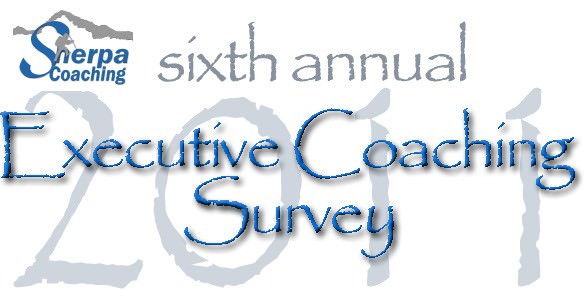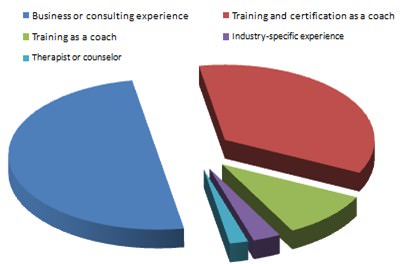
What Makes a Good Executive Coach?
It takes two things to make a good coach: training and experience. Here’s what people have told us over the years, when asked: “What is the most appropriate background for an executive coach?”
Therapy and counseling are a solid basis for personal and life coaching. Industry-specific experience is important for mentoring and consulting. An executive coach in Seattle, Washington, USA told us: “More and more, executives & managers use executive coaches for important areas of development that may not be industry-specific.”
We asked people to choose only one background as “most important for an executive coach”. When more than one answer might apply, it’s a tough choice. Given everyone’s best answers, the results are pretty evenly split between experience and training, as they have been for the past five years. Support for training that includes certification (verification that a body of knowledge has been mastered) has increased over the years, but business experience tops everything else this year as the best background for an executive coach.
The most appropriate background for a coach. 2011 Sherpa survey responses:

A coach in Phoenix, Arizona (USA) commented: “Executive Coaching involves organizational, political and leadership dynamics. Successful experience is key. My clients recognize this. Certification without the relevant experience cannot provide the depth necessary to best serve the client.”
Experience in business is important. Training as a coach is important. Experience as a coach, on top of everything else, makes the difference between average coaches and the very best coaches. A coach from Ottawa, Ontario (Canada) made the point best: “It takes many years of practical experience to become a good coach. Even more important, it helps to have been in positions of leadership and have learned to lead oneself. Common sense and a perspective of being a guide/partner are very important in establishing a productive and effective coaching relationship.”
Download Article














